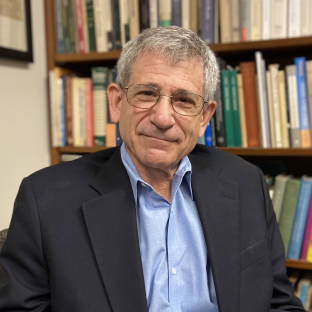Two Visions: Stalingrad and the Human World
Tuition: $360 | YIVO members: $270**
Registration is closed. Sign up for YIVO's email list to receive announcements of upcoming classes.
This is a live, online course held on Zoom. Enrollment will be capped at about 25 students. All course details (Zoom link, syllabus, handouts, recordings of class sessions, etc.) will be posted to Canvas. Students will be granted access to the class on Canvas after registering for the class here on the YIVO website. This class will be conducted in English, and any readings will be in English.
Instructor: Jonathan Brent
The Battle of Stalingrad (August 23, 1942 – February 3, 1943) was one of the most brutal battles of World War II and certainly its most significant turning point. The Battle of Kursk in the summer of 1943 sealed Hitler’s fate and opened the way for the Allied landing on D-Day in June 1944, but it was Stalingrad with the capture and humiliation of Paulus’s 6th Army (and the Italian 4th Army) that demoralized and all but disabled Hitler’s mighty war machine. Axis casualties amounted to some 750,000; Soviet casualties are estimated at some 1,129,000. Over a million men and women died at Stalingrad, far surpassing the toll of any of the major battles of World War I.
Vasily Grossman, a Soviet Jewish journalist and novelist, had unique personal access to the day-to-day fighting during this horrific battle that coincided with the implementation of Hitler’s Final Solution. He lived with the Soviet troops, went on sniper missions, sat in on meetings of the General Staff, and filed report after report to Krasnaya Zvezda (Red Star), lifting the spirit of the beleaguered and fearful Soviet people. Grossman’s novel, Stalingrad (1952), represents a masterful synthesis of his experience and observations, and deeply meditates on war, the Holocaust, Stalin, and the meaning of the Soviet victory.
In the same year in which Grossman chronicled the events at Stalingrad, the thirteen-year-old Yitskhok Rudashevski (1927-1943) found himself in the Vilna Ghetto and began to keep a diary on daily events in the ghetto. Unlike Grossman, Rudashevski did not survive, and his slim diary, found by chance after the war, stands as a unique testament not to the clash of armies and ideologies, but to the cultural resistance of the Jews in the ghetto, the significance of their leadership, and the driving force of their spirit in the face of Nazi brutality.
These two works deserve to be read side by side, partly because the doomed Jews of the Vilna Ghetto closely followed the events of Stalingrad and cheered the Soviet victory—not knowing it was also that victory that sealed their fate—but principally because they provide two different visions of victory over the anti-human Nazi ideology and violence.
Course Materials:
Students are required to purchase the following book before the first date of class:
- Vasily Grossman, Stalingrad, (New York Review Books Classics, 2019) (Purchase)
Students are encouraged (but not required) to purchase any of the following books before the first date of class:
- David M. Glantz, Endgame at Stalingrad, (University Press of Kansas, 2014) (Purchase)
- Antony Beevor, Stalingrad, (Penguin Books, 1999) (Purchase)
- Vasily Grossman, Life and Fate, (New York Review Books Classics, 2006) (Purchase)
- Jochen Hellbeck et al., Stalingrad: The City that Defeated the Third Reich, (PublicAffairs, 2016) (Purchase)
All other materials will be provided digitally by the instructor.

Jonathan Brent is the Executive Director of the YIVO Institute for Jewish Research in New York City. From 1991 to 2009 he was Editorial Director and Associate Director of Yale Press. He is the founder of the world acclaimed Annals of Communism series, which he established at Yale Press in 1991. Brent is the co-author of Stalin’s Last Crime: The Plot Against the Jewish Doctors, 1948-1953 (Harper-Collins, 2003) and Inside the Stalin Archives (Atlas Books, 2008). He is now working on a biography of the Soviet-Jewish writer Isaac Babel. Brent teaches history and literature at Bard College.
**Become a member today, starting at $54 for one year, and pay the member price for classes! You’ll save on tuition for this course and more on future classes and public programs tickets.





